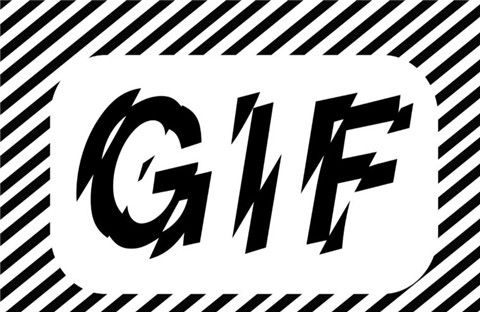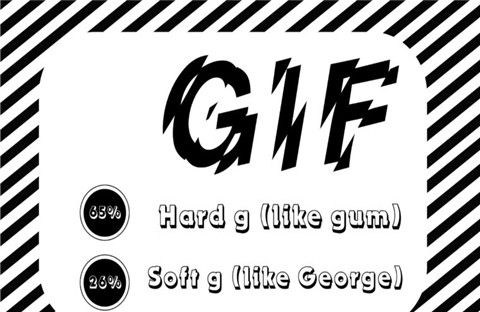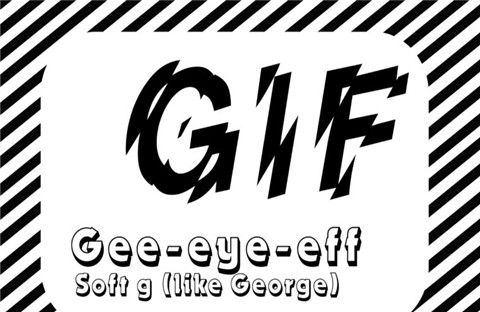惹争议,GIF这个词究竟要怎么读?

There’s no denying it: This age-old question has turned into a heated—and relationship-ending!—debate. And no, it has nothing to do with politics or religion. The real query is actually much more contentious. How do you pronounce GIF?
不可否认,这个有些年头的话题已经成为热火朝天、吵到做不成朋友的争议话题。不,这与政治或宗教无关。实际上,对这个话题本身的质疑引起了很多争议。这个话题就是:你如何读“GIF”这个词?
Some say it with a hard g (like gum), while others use soft one (like George). But in the end, only one pronunciation can rule the day. For years, the debate over what to call these looped image files, also called Graphics Interchange Format, seemed unresolvable—until now. According to Still, when all is said and done, GIF creator Steve Wilhite did say that he uses the soft g. So who is the real winner here? (Don’t worry; even smart people mispronounce these words.) the answer might simply come down to where you’re from.
有些人将g读成生硬的/g/(如gum的发音),而其他人将它读作轻柔的/dʒ/(如George的发音)。但是最后只能有一个标准读音。这些年来,关于如何读这些环绕图像文件或图像互换格式(即GIF)的争议看似无法解决。直到最近,根据Still网站的报道,GIF发明者Steve Wilhite读的是轻柔的/dʒ/,争议到此结束。所以谁才是真正的赢家呢?(别担心,即使是聪明人也会读错这些词)你的回答很可能暴露你来自哪里。

The computer-programming forum Stack Overflow recently ran the question by 50,000 people in 200 countries. Their results? The hard g took home the victory, with 65 percent of survey respondents using the pronunciation. Meanwhile, only 26 percent went for the soft g.
计算机编程论坛Stack Overflow最近向50,000个来自200个不同国家的人发送了民意调查。调查的结果如何? 生硬的/g/音获胜,有65%的受访者读这个音。与此同时,只有26%的受访者读轻柔的/dʒ/音。
Debate solved, right? Well, not necessarily. The data analysts noted that the question had “built-in linguistic biases.” A hard g doesn’t exist in some languages, so those speakers probably use a soft g to pronounce GIF. Vice-versa for those who don’t have a soft g in their native tongues. Unfortunately, the survey was a bit misrepresentative; although languages that favor the hard g sound make up just 45 percent of the world’s population, almost 80 percent of the poll’s respondents came from those language backgrounds.
争议已经解决了,对吧?其实未必。数据分析师指出,这个问题有“内在的语言偏差”。有的语言里没有/g/这个发音,所以说这些语言的人用/dʒ/读GIF。对于母语里没有/dʒ/读音的人反之亦然。不幸的是,这个调查与事实有所偏差。虽然倾向/g/发音的语言的人口只占全世界的45%,但参与此次民意调查的人中却有80%有这样的语言背景。
On top of that, participants from Asian countries took a third—and often-forgotten—stance: pronouncing each individual letter. According to the poll, enunciating it as gee-eye-eff is common among the Chinese and South Koreans. While around half of respondents from China opted for that choice, 70 percent of South Korean respondents did, too.
除此之外,来自亚洲国家的受访者则站在第三个常被忽略的立场:将每个字母逐一读出。根据此次民意调查,中国人和韩国人习惯将GIF读成 gee-eye-eff 。中国受访者中有一半人如此发音,而韩国受访者中也有70%的人这么读。

Still, when all is said and done, GIF creator Steve Wilhite did say that he uses the soft g. So who is the real winner here? (Don’t worry; even smart people mispronounce these words.)
归根结底,GIF发明者Steve Wilhite确实说他发/ dʒ/这个音。所以,谁才是真正的赢家呢?(别担心,即使是聪明人也会读错这些词)